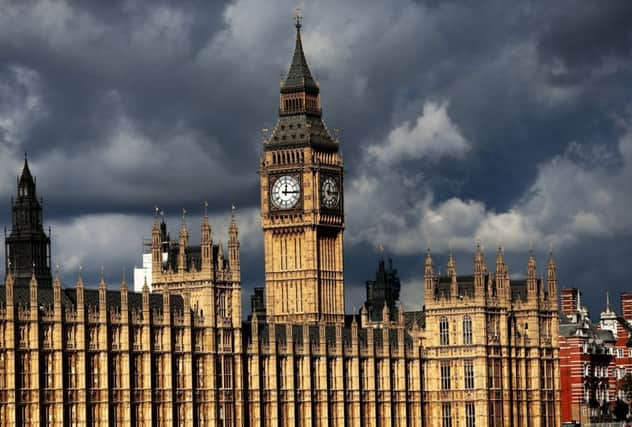HMRC’s increased powers must be matched by greater accountability, says loan charge review


Sir Amyas Morse said that HMRC’s charter should be reviewed to set higher expectations of performance during its interactions with the public.
The report found there had been a “breakdown of trust” between HMRC and a large number of people who gave evidence to the review.
Advertisement
Hide AdAdvertisement
Hide AdIn his review of the loan charge, Sir Amyas said: “One of the common themes across many of the impact statements submitted to the review was that the negative experiences of those submitting came not just from the need to pay significant sums of money, but also from the experience of how cases were handled by HMRC.
He added: “Our view has been guided by the principle that the government must ensure that HMRC’s increased powers are matched by greater accountability and improved performance, in recognition of the impact that they can have on members of the public.
Sir Amyas said: “It should be acknowledged that it is, understandably, more likely for people to contact the review when they have had negative experiences. Those with positive or neutral experiences would have less incentive to contact the review. However, there is enough evidence to illustrate that the way in which HMRC dealt with some individuals fell short of the standards that the taxpayer might reasonably expect.”
The review heard of difficulties in knowing or understanding the amount HMRC considered due, Sir Amyas said.
Advertisement
Hide AdAdvertisement
Hide AdHe added: “We received repeated accounts of HMRC providing figures that were inaccurate, either by being internally inconsistent or because they were very significantly higher than the result of similar calculations conducted by the individual or their accountants – in some cases by tens of thousands of pounds.
“The fact that the loan charge could look back 20 years also made it less likely that scheme users would have kept financial paperwork, therefore making it harder for them to challenge those calculations.
“In certain cases, this contributed to taxpayers providing HMRC with additional relevant information as cases developed – leading to further calculations of sums owed through settlement, and consequential delays in settlement being agreed.
“In addition, the amount of leverage that HMRC had to make people settle – given that the alternative to settling would be paying the loan charge - makes these reports particularly troubling as it could make it more likely that people will settle for amounts that exceed what they truly owe.”
Advertisement
Hide AdAdvertisement
Hide AdHMRC’s approach since 2014 has evolved significantly, the review found.
The report said: “The review received evidence from HMRC of a more active approach, based on greater access to real time information. This approach, which the review welcomes, better enables HMRC to communicate directly with individuals at an early stage about their potential involvement in tax avoidance.
Sir Amyas’ report added: “We also received accounts of individuals finding letters or visits from HMRC to be unnecessarily threatening, intimidating or embarrassing.”
“The result of these experiences is that trust has broken down between HMRC and a large number of those we heard from.”
Advertisement
Hide AdAdvertisement
Hide AdIn the conclusion of his review, Sir Amyas recommends: “HMRC’s Charter should also be reviewed to set higher expectations of performance during interactions with members of the public, and to ensure that staff are trained to meet these expectations.
“HMRC should update taxpayers at least annually about the status of open tax enquiries (except where doing so would risk alerting a taxpayer to a criminal investigation) and highlight that they have the option to request that these be closed. Where this does not take place, the noncommunication should be taken into account by the FTT if a taxpayer applies to have an open enquiry closed.
“HMRC should fund an external body to provide independent advice to lower income taxpayers who are discussing payment arrangements and debt collection with HMRC. This will help to maintain trust in future, ensure that HMRC set out their position clearly, and support scheme users to better understand the range of factors that are taken into account when making decisions.”
The Government has recognised the concerns raised in the review about the impact on individuals and fairness of some aspects of the loan charge. To address them, all but one of the recommendations have been accepted.